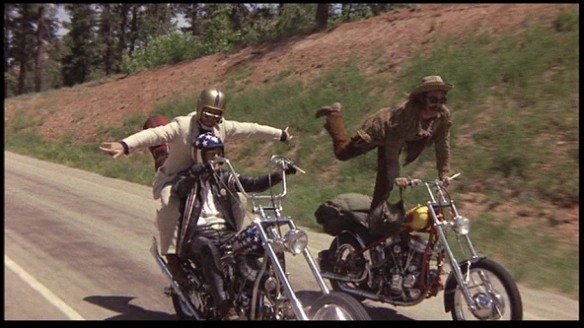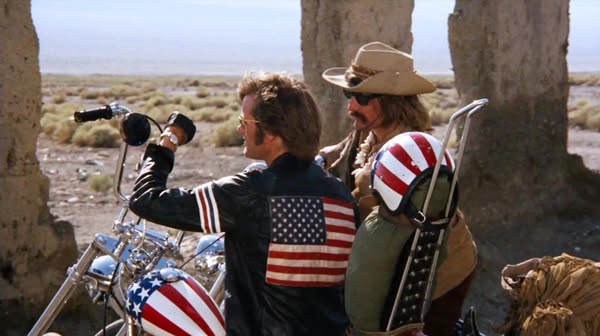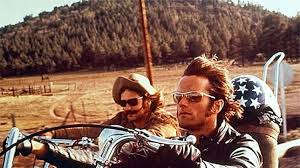Easy Rider (1969)

Easy Rider is a groundbreaking film released in 1969 that has since become a defining work of American cinema. Directed by Dennis Hopper, this film is often credited with ushering in a new era of independent filmmaking and capturing the spirit of the counterculture movement of the 1960s. Its exploration of freedom, identity, and the quest for meaning resonates deeply, making it a timeless classic.
The narrative follows two bikers, Wyatt (Peter Fonda) and Billy (Dennis Hopper), as they embark on a cross-country journey from Los Angeles to New Orleans. Their road trip is fueled by a desire for freedom and adventure, symbolizing the search for the American Dream. Along the way, they encounter a diverse array of characters and experiences that reflect the social and political tensions of the era, including issues of race, class, and the clash between traditional values and the burgeoning counterculture.

The film is notable for its genre-defying blend of drama and adventure, combined with elements of a road movie. Easy Rider challenges conventional storytelling by weaving in themes of alienation and disillusionment, portraying the struggles of individuals seeking their place in a rapidly changing society. The cinematography captures the vastness of the American landscape, emphasizing the characters’ longing for freedom and the open road.

One of the film’s standout features is its innovative use of music, incorporating a rock soundtrack that enhances its cultural significance. Songs from artists like Steppenwolf and The Byrds not only set the mood but also reflect the ethos of the time, further anchoring the film in the countercultural movement.
The performances by Fonda and Hopper are compelling, bringing depth to their characters as they navigate both external challenges and internal conflicts. Their journey is not just physical but also existential, raising questions about what it means to be free in a society that often imposes restrictions.

Easy Rider received critical acclaim upon its release and became a significant cultural touchstone. It is often regarded as a reflection of the disillusionment many felt during the 1960s, particularly among youth seeking authenticity in a world filled with conformity. Its impact on the film industry is profound, paving the way for future independent filmmakers and altering the landscape of Hollywood.
In conclusion, Easy Rider is a seminal film that captures the essence of a generation grappling with complex social issues while pursuing personal freedom. Through its innovative storytelling, powerful performances, and striking visuals, it remains a landmark achievement that continues to inspire and resonate with audiences today.











